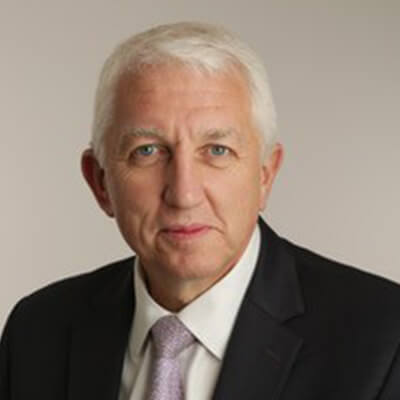
Strategic Defence Review Consultancy
Strategic Defence Review 2025: Transforming Defence and Opening New Horizons for Industry
The Strategic Defence Review 2025 (SDR) represents the most ambitious overhaul of the UK’s defence and security landscape in decades. For the first time in history, it has been led by an external team – Lord Robertson, UDSS Co-Chair General Sir Richard Barrons, and Dr Fiona Hill – a testament to the need for independent scrutiny and fresh thinking. The message is clear: defence and security are no longer just national priorities; they are the driving force behind a new partnership with industry, innovation, and investment.

Why Choose UDSS?
A Step Change in Defence and Industrial Power
The SDR outlines a bold ambition: to create an Armed Forces that is ten times more lethal by harnessing human, digital, and autonomous capabilities. It promises the largest sustained increase in defence spending since the Cold War and a decisive shift away from Cold-War-era procurement cycles and outdated processes. Defence must become an engine for UK economic growth, not just a cost centre, and a new National Armaments Director has been appointed to lead this transformation.
For industry, the SDR sets the stage for a reimagined partnership – one that values dual-use technologies, regional growth, and global exports. UDSS is ready to help you translate these ambitions into tangible strategies and solutions that align with the MOD’s new vision.
Our Defence Solutions
For too long, traditional MOD procurement processes have held back innovation and productivity, with contracts over £20 million taking an average of 6.5 years to be awarded. The SDR dismantles these barriers with a segmented approach to procurement:
- Major modular platforms awarded within two years
- Spiral and modular upgrades in one year
- Rapid commercial exploitation in just three months, with at least 10% of MOD’s equipment budget allocated to novel technologies
- A 50% reduction in Defence Standards and Conditions by 2026, along with reformed IP handling, security clearance, and contract processes
How UDSS Can Support:
We’ll guide you through these new pathways, helping you shape your organisational offerings to match Defence’s outcomes-focused approach and unlocking private finance and export opportunities. Our team can advise on regulatory reforms and best practices, ensuring your business is ready to respond at the speed of innovation.
The SDR puts innovation at the heart of national defence – and acknowledges that some of the best solutions already exist in the private sector. It positions Defence as a first customer for dual-use and commercial solutions, supported by:
- The creation of UK Defence Innovation (UKDI), with a dedicated £400 million annual budget
- A new Defence Research and Evaluation (DRE) organisation to bridge Defence with academia and early-stage R&D
- The launch of a Defence Investors’ Advisory Group to foster private capital and new funding models
How UDSS Can Support:
We will help you identify how your technologies and services can address Defence’s operational challenges – not just meet existing specifications. By connecting your business with MOD innovation hubs and providing practitioner-led reviews of your solutions, we’ll accelerate your journey to market within Defence’s modernised framework.
The SDR recognises that future conflicts will be won by those who are better connected, faster, and more innovative. Commitments include:
- Launching the Defence Uncrewed Systems Centre by February 2026
- Establishing a protected Defence AI Investment Fund
- Fully integrating drones, AI, and autonomy across all domains
How UDSS Can Support:
We bring extensive experience in cyber operations, digital warfare, and AI integration. Our experts can help you apply lessons from modern conflicts, test and evaluate your solutions, and ensure they align with Defence’s new digital-first doctrine.
The SDR’s ambitions reach beyond security – it sees Defence as a driver of economic prosperity and regional development:
- £39 billion spent with UK industry in 2023/24
- £14.5 billion in defence exports in 2023
- Over 440,000 UK jobs and 24,000 apprenticeships supported
- £6 billion investment in munitions, including six new factories
- Regional technology clusters in cyber (Manchester), AI (North East), and marine autonomy (Plymouth)
- A new Defence Exports Office to unlock global markets
How UDSS Can Support:
We will help you develop regional engagement strategies to tap into place-based growth and cluster funding. Our team can advise on building international partnerships and export strategies that align with MOD’s evolving priorities, ensuring you’re positioned to thrive in both domestic and global markets.
The SDR recognises the crucial role of external expertise and private finance in driving Defence innovation:
- A dedicated MOD strategy for the financial services sector by March 2026
- A Defence Investors’ Advisory Group to connect innovators with venture capital and private equity
- New funding models to make defence innovators a more attractive proposition
How UDSS Can Support:
We act as a trusted bridge between Defence innovators and financial institutions, aligning incentives and managing risk. Our team can help you develop investment readiness strategies and conduct rigorous commercial risk analysis to secure the funding you need to scale.
The SDR envisions a dynamic industrial base – one that can support an Integrated Force ready to deter, fight, and win. It prioritises rapid adoption of dual-use technologies, rewards productivity and risk-taking, and sees Defence’s buying power as a catalyst for the wider economy.
How UDSS Can Support:
We will ll work with you to shape your capabilities to meet Defence’s evolving demands, providing strategic risk assessments and mapping collaborative opportunities across Defence, academia, and global partners. Our practitioner-led insights will ensure your innovation aligns with the UK’s security and prosperity goals.
Seizing the Opportunity Together
The Strategic Defence Review 2025 is a once-in-a-generation moment for the UK’s defence and industrial base. It challenges us to think differently about what military power is – and to build it together, through innovation, collaboration, and a shared vision for national security.
At UDSS, we’re here to help you translate these ambitions into reality. From interpreting SDR implications to forging new partnerships and unlocking your full potential, we’re ready to support you every step of the way.
Contact us to arrange a tailored SDR briefing or explore how our team can support your organisation: info@universal-defence.com
Need a copy of the UK's Strategic Defence Review 2025? Access your copy below:

Meet Our Experts
His 28-year military career included service as ACDS (Logistic Operations) in the UK MoD and logistic command on operations from squadron to brigade level, from Bosnia to Afghanistan. He was also pivotal to many support transformation initiatives across Defence, in the land and joint domains, involving greater industry roles in delivering defence support. Since leaving the Army he has worked for large and small consultancies, advising commercial clients in a variety of sectors in strategy, critical programme management and strategic supply chain. David was the founding chairman of the Royal Logistic Corps Foundation, served as a colonel commandant of the Royal Logistic Corps for 15 years and is currently chairman of the Soldiers of Oxfordshire Museum Trust.
Originally Tornado aircrew, most recently he was Chief of Defence Intelligence until end 2018, responsible for the provision of strategic intelligence to Defence and Government, ISR co-ordination and counter-intelligence, as well as Defence leadership of offensive and defensive cyber. Previously, Phil commanded one of the two operational RAF Groups, and stood-up the 2.5Bn/yr Joint Forces Command (now Strategic Command) Capability Portfolio.
Air Commodore (Ret'd) Thornber has had tours in strategic imagery analysis, tactical reconnaissance, intelligence-collection management, instructing, on exchange with the US, contingency planning, and in an outer office. His operational experience spans tours in the Afghanistan, Balkans, Kuwait, Iraq, Qatar, Saudi Arabia and Turkey supporting air and land ops at tactical and joint operational level.
In 2003, he took command of the RAF’s Tactical Imagery Intelligence Wing (now 1 ISR Wing) before returning briefly to Shrivenham as ACSC Directing Staff in 2006. He was promoted to Gp Capt in 2007 as Director Joint Narcotics Analysis Centre and deployed to ISAF Joint Command as Deputy Director Intelligence (Operations) for a year in 2009. He took command of the Joint Air Reconnaissance Intelligence Centre in 2010, moving it to Wyton in 2012 to form the Defence Geospatial Intelligence Fusion Centre. In 2013, he was posted to Supreme Allied Command HQ as Head Knowledge Management, before being promoted to Air Cdre in 2015 and returning to UK as ACOS J2 at the UK’s Permanent Joint HQ. He became a Commander in the Order of the British Empire in 2014.
In 2016, he was posted to US Central Command as Deputy Director for Intelligence (Operations) as 1* lead for ISR, Targeting and Intelligence Plans and Ops, for which he earned the US’s Legion of Merit (Officer). He returned to the UK in 2018 to Defence Intelligence as Head of Assessment for Middle East and Africa in close support to Ministers and Service Chiefs, and then in 2019 became Head of Defence Intelligence Operations.
He retired from Regular Service in 2021 but has a continuing role in the RAF Reserve as Deputy Director in UK Strategic Command’s Integrated Cyber Electro-Magnetic & Effects Directorate. He is also an independent Defence and Security consultant in financial and technical sectors, is Chair of the RAF Intelligence Association, and President of the Medmenham Association.
His last role was in the National Crime Agency responsible for a portfolio of complex crime fighting technology programmes and transforming the Agency’s IT Services. Prior to this, he was responsible for the delivery of MOD’s £7.2Bn highly secure IT programme supporting 250,000 Users in the UK, Overseas and Deployed locations. His broader career spans senior positions in HMG across Intelligence, International Collaboration in the US, Science and Technology, Counter Terrorism and People Transformation.
A graduate of the Cabinet Office sponsored Major Project Leadership Academy (MPLA) and an experienced Cabinet Office High Risk Review Team Leader, he has been responsible for leading a number of strategic reviews of Government Major Projects in CT Policing, FCO, MOD, NDA and HMRC. Throughout his career as a leader Brian has always had a strong interest in developing talent and through active coaching, he continues to enable many senior leaders reach their potential both in industry and Government.
within the Defence and Security community including with numerous allies and partners including NATO. As a strategic thinker and innovator, he has been at the forefront of a number of Defence’s force development initiatives including multi-domain integration, space, cyberspace, modern deterrence, CBRN defence as well as the introduction into service of some novel and highly classified capabilities.
He has published numerous articles, participated in a number of international conferences, as well as having been a member of a UK-US-Russia and China Track 2 initiative to improve military cyber security understanding. Philip has been the 1* lead in DCDC on doctrine, air, space and cyberspace matters and previously held the Chief of Staff appointment and the leadership of defence experimentation through the Integrated Warrior programme from within Joint Forces Development. He holds a MPhil in international relations from the University of Cambridge. He is a member of the Royal College of Defence Studies and a graduate of the Higher Command and Staff Course. Philip is currently the RAF senior directing staff at RCDS where he leads on strategy and professional military education. He has just published the colleges strategy handbook - making strategy better.






%20(1)-1.jpg)
.jpg)